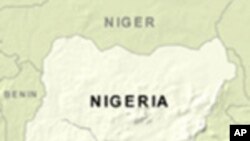In testimony before the United States Congress, U.S. Assistant Secretary of State for African Affairs Jendayi Frazer said the April presidential elections in Nigeria were "seriously flawed" and "a great disappointment to both Nigerians and to the United States."
Credible reports of vote rigging, ballot-box stuffing, and non-transparent counting, she said, are "a sharp reminder of the many deep and persistent challenges to effective government in Nigeria":
"The scope and scale of reported problems with the polling have exposed serious weaknesses in the electoral system and now pose risks to the country's fragile democracy. As a result, addressing these problems quickly must be an immediate priority for the [President] Yar'Adua administration. This will include allowing the legal challenges to proceed unimpeded and their results to be respected. It will also mean moving. . . .to fix the broken electoral system, including making the electoral commission fully independent. Our policy is to strongly encourage the new government to tackle these problems in the early days of the administration."
The best way for the United States to strengthen Nigeria's fragile democracy, said Assistant Secretary of State Frazer, is to engage with it on the issues of political reform, regional security, and economic opportunity:
"U.S. policy goals in Nigeria are to strengthen social stability through pluralism, democracy, and good governance; to promote more market-led economic growth as the best means to reduce poverty in a sustainable way; and to enhance Nigeria's ability to act as a responsible regional and bilateral trade partner."
The United States, said Ms. Frazer, can best achieve these goals by applying diplomatic pressure for reform, sharing technical expertise, and catalyzing private sector support for "job-creating investments and profound governance reforms."












